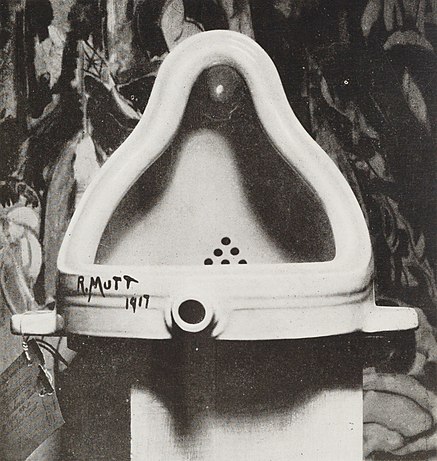orpheus wrote:mistermack wrote: Orpheus seems to claim that only the "magic" that makes a picture "special" is missing from a repro.
First, only if "magic" is understood to be a metaphor for aesthetic experience. Second, I'm not claiming what you say I am to the same degree with everything. I've stated a number of times that different media and genres translate translate with different degrees of "loss".
Yes of course that's what I meant by magic. Well, or, you could say "genius" in place of magic, given the respect and price bracket.
But the point I'm making is that you are indicating a
selective loss. That the appearance will come through, but the "genius" is somehow lost. Because if the same proportion of "magic" or "genius" shines through on the screen as actual appearance, then there's not reason not to be able to judge the picture from the reproduction. You can just allow for 10% or 20% better in real life.
You are clearly saying that that's not so.
orpheus wrote:mistermack wrote:] I see no reason why that should be. I don't believe it. The magic should come across as well, if it exists.
Why?
As I said above, I see no reason that a camera lens should be selective. How can an ordinary lens filter out the genius of an artist? And leave an accurate image? Your eyes work in the same way as the camera lens.
They produce an image of what's in front of them.
3D is the only missing element. Is that where the "genius" is filtered out? On a flat canvas? It could be for a TINY number of paintings, but you can normally tell if a painting is THAT thickly painted, and would accept some loss there.
Not that 3d is the essence of genius anyway, otherwise oil paintings would be very different.
orpheus wrote:mistermack wrote: Secondly, about the price. I wonder how many "masterpieces" have been bought by billionaires who have NEVER seen the original, but just as a print or computer image? First, only if "magic" is understood to be a metaphor for aesthetic experience. Second, I'm not claiming what you say I am to the same degree with everything. I've stated a number of times that different media and genres translate translate with different degrees of "loss".
Very, very few - if any. Provenance is incredibly important in the world of art dealing.
Yes but Billionaires would hardly rely on their own eyes for provenance.
You don't need to see the painting in the flesh for provenance. It needs to be much more watertight than that.
I would bet that many millions have been spent on paintings the buyer has never seen with their own eyes. You just need the history, the paper provenance, and to know your market.
orpheus wrote:mistermack wrote: I think Orpheus, you are not typical in valuing just the visual experience of the original. You're in a tiny minority. Most people are more influenced by what it's worth, and any story about the life of the artist.
I'm not sure you're right that there are so few of us. But to the extent that you're right about "most people", I think they're missing a lot. But it has always been like this. And if they're happy, all well and good.
I will protest, however, if they make sweeping objective pronouncements about something they've not seen. I also take offense at insulting generalizations about the motivations of artists, the supposed trivial ease of making art, and the suposed easy money we get.
It's clear that you're aware then, that people DO get impressed by the name, and see qualities that aren't really there. Because just as many people praise works that they've not seen. But you're sure that what you are seeing is the real thing?
I'm not so sure about anyone.
My own feeling is that you do the camera a disservice, claiming such a loss for an image, compared to the painting.
I'm not aware of any painter in the world, who can do justice to a landscape, the way a good camera can. And I can assure you that the feeling of the Grand Canyon couldn't be captured in paint, the way it can by a camera. Not for me. So to say that a camera can't capture that essence as well as paint is wrong, in my opinion.
orpheus wrote:
Also, at the end: I know some of these people "quite" well, not "cutie" well. (Although some of them are cute. Not many, though.) Damn autoincorrect
That's a shame. I cutie liked that expression.



